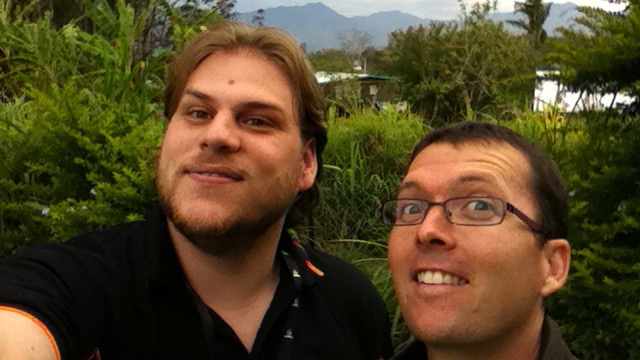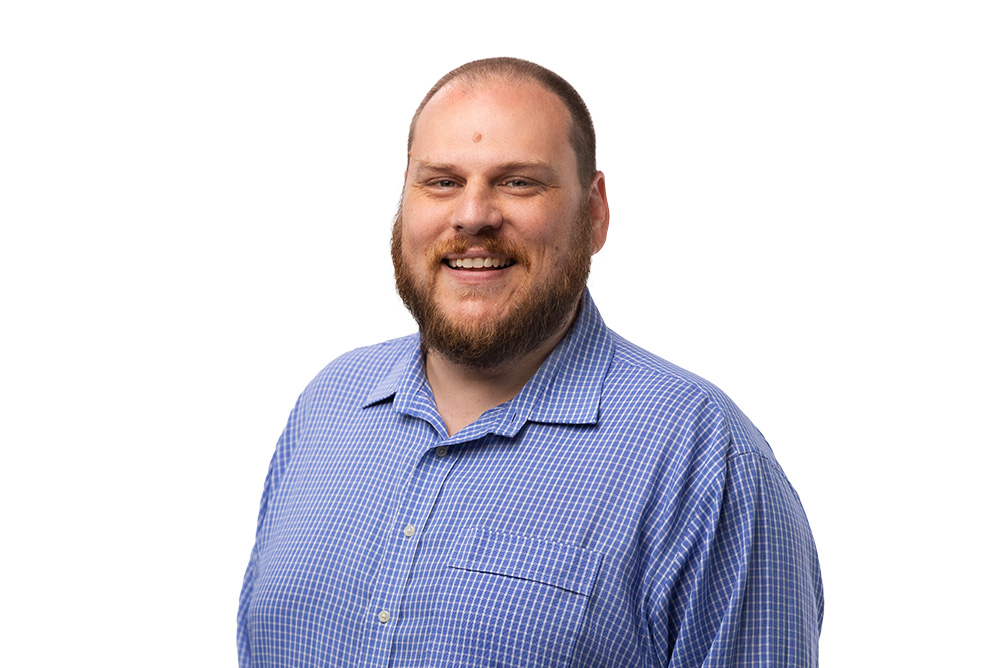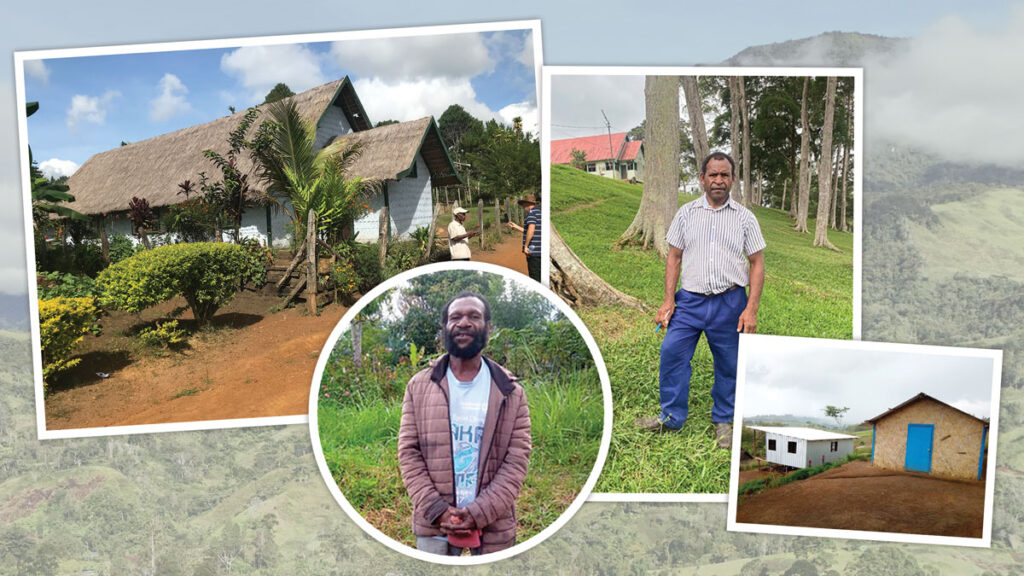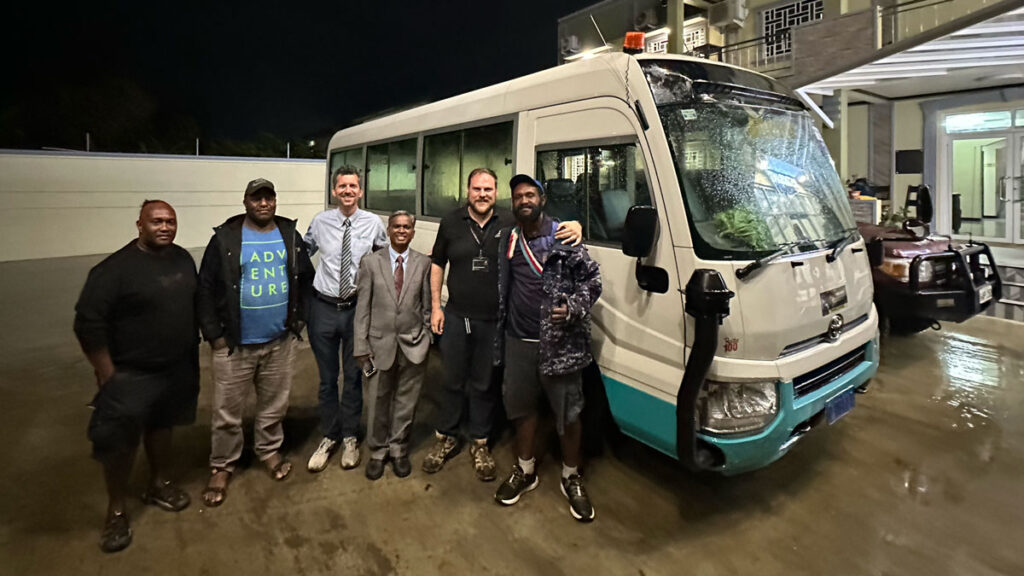The tropical sun was baking hot as our guide took us around Kabiufa Adventist Secondary School. It was my first trip to Papua New Guinea and I was excited to be walking on the campus where my grandfather had lived and worked. I had grown up with stories of my mother’s time in Fiji with my grandparents. After she returned to Avondale, they had moved to Kabiufa. As we walked through the immaculate gardens, the people we met were warm and friendly—the sun was the only unwelcoming body, beating and burning. It was Sabbath and, after our tour, it was time to board a plane and return to Moresby for a flight home early the following morning.
In the hotel that night, I suffered the worst gastro of my life (I’ve since found out it’s known as Goroka gut). I’ll spare you the gory details but suffice to say the night is seared in my memory. Sunstroke and dehydration coupled with some dodgy water hit me hard.
It brought home both how hard and also how beautiful and enriching it can be to travel. It brought home some of the realities of the hardships faced by missionaries as they enter foreign fields—if you’re not well prepared (as I wasn’t that day), and even sometimes when you are, you can get very sick. It also illustrated the reality depicted in my grandparents’ stories and the missionary books I had read as a kid: there is beauty, passion, God-moments, hardship, illness, tragedy, triumph and struggle all wrapped up in the mission experience.
Although for me it was only a taste, I was reminded of the challenges and triumphs of the missionary experience.
Many of us who live in the South Pacific Division (SPD) have either worked as missionaries or have close family members who did. Missionary work was an integral part of this Division’s identity and culture. Yet, somewhere along the way, we lost that connection. I want to acknowledge the amazing work of modern day missionaries working throughout the Division. But it is rare for anyone to define themselves as a missionary anymore.
Make no mistake, the missionary imperative is still valid. Christ still compels us to “Go”.
But what it means to be a missionary has changed. The assumption that a missionary has to go to foreign shores to preach the gospel has changed. I think it’s time we redefined the word. There are practical opportunities that still exist for modern day missionaries, some of which are overseas and some of which are in our very own backyards.
In the past few days I’ve come across a few of these opportunities that I’d like to share with you.
During SPD worship I heard about the amazing work of the remote clinics in the Pacific where Adventist health professionals are working—transforming communities and planting seeds for Christ. We also heard about the Australian churches that have adopted them and organised fly‘n’builds. [pullquote]
These shorter trips can transform local churches but there are so many missionary opportunities at home as well.
When I heard about the medical missionary work making such an impact in the Pacific, I asked myself what needs could be met here in Australia. One area increasingly impacting the community is mental illness. As members we can learn more and take part in programs designed to support people struggling with this issue. Another problem is obesity. CHIP and other fantastic Church resources are available to use in our communities.
I look around and see my own demographic—middle-class, white Australian males—under represented in Australian churches. What can we do to reach upper and middle class Caucasian communities? Throughout the SPD there are entire communities of immigrants from countries where there is no knowledge of Christ. What are their needs? How can we connect with them?
And there are still overseas opportunities. The Adventist Church runs a “tent-making ministry”—for the intentional placement of Adventist professionals in employment in unreached areas. There is also an Adventist Professionals Network, for members who want to be involved in mission.
The opportunities are still there. The call is still there. The question is, will we go?






